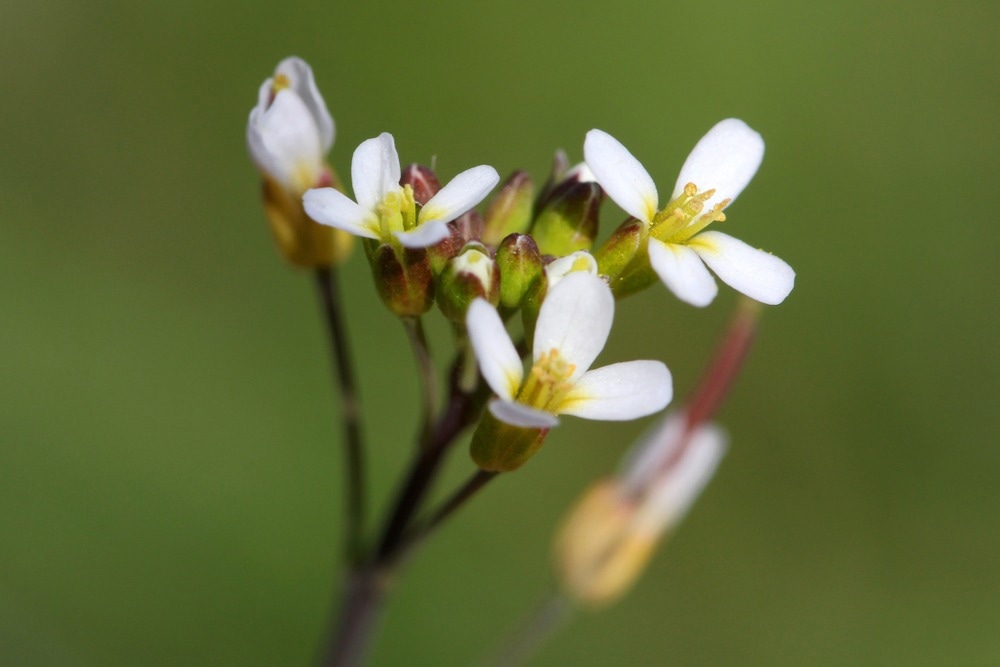Arabidopsis (Arabidopsis thaliana)’s photoperiodically controlled flowering and circadian pathways are primarily regulated by CONSTANS (CO), a well-known B-box family member.

Image Credit: lehic/Shutterstock.com
Roots and young leaves of plants, as well as other tissues, express CO. It is still unknown how CO affects physiological processes other than flowering, as well as the underlying mechanisms that underlie these effects.
In a study that was published in Plant Physiology, scientists from the Xishuangbanna Tropical Botanical Garden (XTBG) of the Chinese Academy of Sciences demonstrated that, under long-day conditions, the ABSCISIC ACID-RESPONSIVE ELEMENT BINDING FACTOR (ABF) transcription factors were physically associated with and antagonized by the CONSTANS protein, which negatively regulated salinity tolerance in Arabidopsis.
The initial step taken by the researchers was to examine the geographical distribution of CO expression and find its transcripts in young leaves and seedling roots. They noticed that salt-stressed seedlings had lower amounts of proteins and CO transcription.
After conducting phenotypic studies, they discovered that CO adversely influences salinity tolerance in long-day (LD) circumstances. Overexpression of CO led to plants with lower tolerance to salinity stress, whereas the loss-of-function CO mutant seedlings were more resistant to salinity stress.
Genetic studies demonstrated that a functional CO protein was necessary for GIGANTEA (GI) to play a damaging role in mediating salt tolerance. Additional research revealed that CO physically interacts with the basic leucine zipper domains ABSCISIC ACID-RESPONSIVE ELEMENT BINDING FACTOR1 (ABF1), ABF2, ABF3, and ABF4.
These ABFs had a positive impact on how salinity tolerance was modulated. Several salinity-responsive genes’ expression was suppressed by CO, and ABF3’s ability to regulate transcription was hampered.
Our results suggest that CO antagonistically interacts with ABFs to inhibit salinity responses. This study provides a mechanistic understanding of how plant salinity tolerance is negatively regulated by CO functioning in conjunction with ABFs transcription factors.”
Yanru Hu, Professor, Xishuangbanna Tropical Botanical Garden, Chinese Academy of Sciences
Source:
Journal reference:
Du, J., et al. (2023). CONSTANS interacts with and antagonizes ABF transcription factors during salt stress under long-day conditions. Plant Physiology. doi.org/10.1093/plphys/kiad370